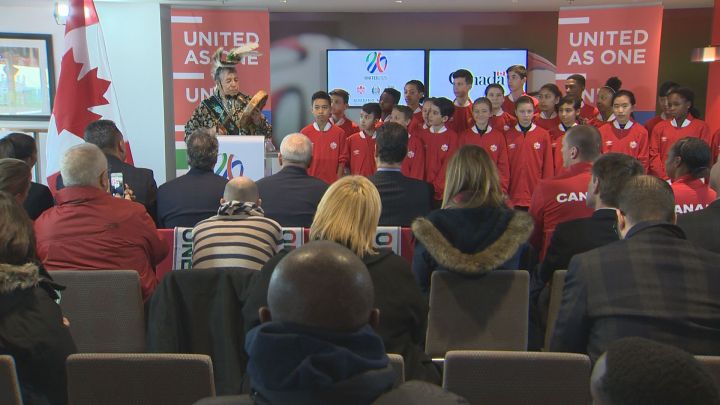Alberta cities are hoping to take the world stage as they vie to host premiere events in 2026, but an expert says the process of bidding on international sporting events is changing.

On Friday, Calgary announced that it had financial backing from both Ottawa and the province as it pursues the 2026 Olympic and Paralympic Winter Games, but Edmonton is still waiting for the Notley government to support its participation in North America’s joint FIFA World Cup bid.
University of Alberta Business professor Dan Mason told the Alberta Morning News he understands the hesitation, especially considering the past conduct of managing bodies like the International Olympic Committee (IOC) and FIFA.
LISTEN: University of Alberta Business professor Dan Mason tells Peter Watts how the demand to host international sporting events is changing
“There was almost an arrogance to the selection process, and now the amount of appetite from these cities to host these events is not the same, and yet some of the expectations that FIFA and the IOC have may not be changing.”
The Province says it needs more information on how the event would affect taxpayers — a reasonable position to take according to Mason.
“It’s the cities that are going to be the most responsible financially for the cost overruns and the demands that are being put upon them by the sport-governing bodies.” Mason said.
And it’s a situation that municipal governments are increasingly taking to heart; this week, Chicago, Minneapolis and Vancouver all decided to pull out of the joint FIFA bid. Mason said it’s part of growing pushback against the managing bodies of these international events.

Get breaking National news
“For example, once upon a time a city that was hosting the Olympic Games would just build a new stadium to host the opening ceremonies, even though they didn’t necessarily have use for it afterwards. Well, I think those days are gone.” Mason said.
“And so I think you’re only going to see cities interested that can accommodate the event more with their existing infrastructure, or they have a need for the infrastructure that the games will deliver.”
Mason said until IOC and FIFA shape up, we should expect even more pushback from bidding cities as they question the economic spinoffs these events promise.
“We’re better off relying on independent research that tends to show that the estimated economic intangible benefits tend to be overstated,” Mason said. “So I think that’s probably one of the things that’s happening now is that cities are becoming more aware that they’re not necessarily getting the kinds of benefits that they’re anticipating when they’re hosting the events.”
Calgary’s Olympic bid is estimated to cost $30 million. Calgary City Council will discuss the bid Wednesday.
As for Edmonton, it’s one of three Canadian cities hoping to host some of the FIFA tournament’s 80 games, along with cities in the United States and Mexico. Estimated cost to be a host city sits between $35 million and $55 million. While the Province has yet to pledge any fiscal support, the City of Edmonton is hopeful that will change as the bid process advances.
With files from Peter Watts, The Canadian Press.









Comments
Want to discuss? Please read our Commenting Policy first.